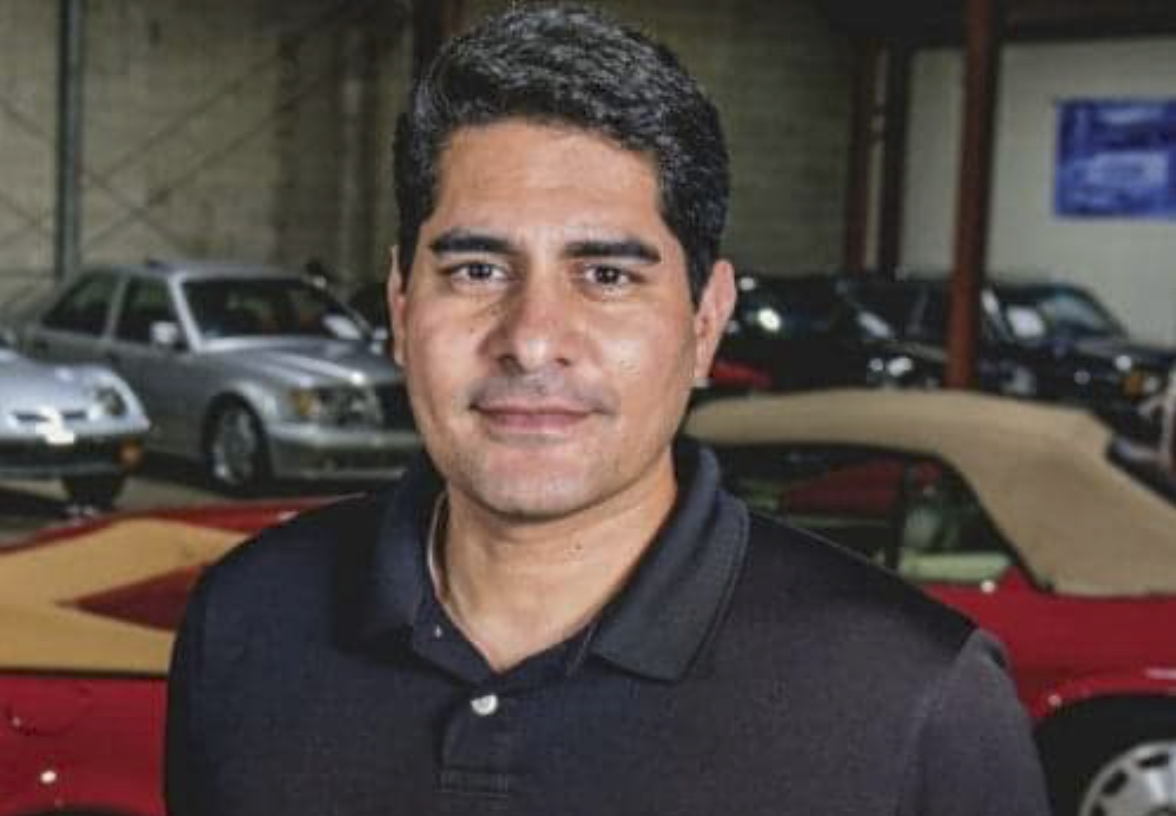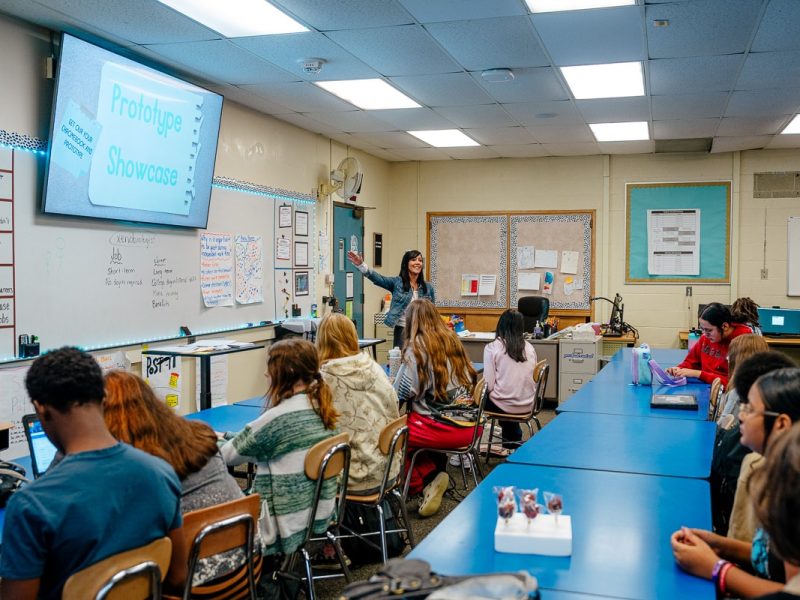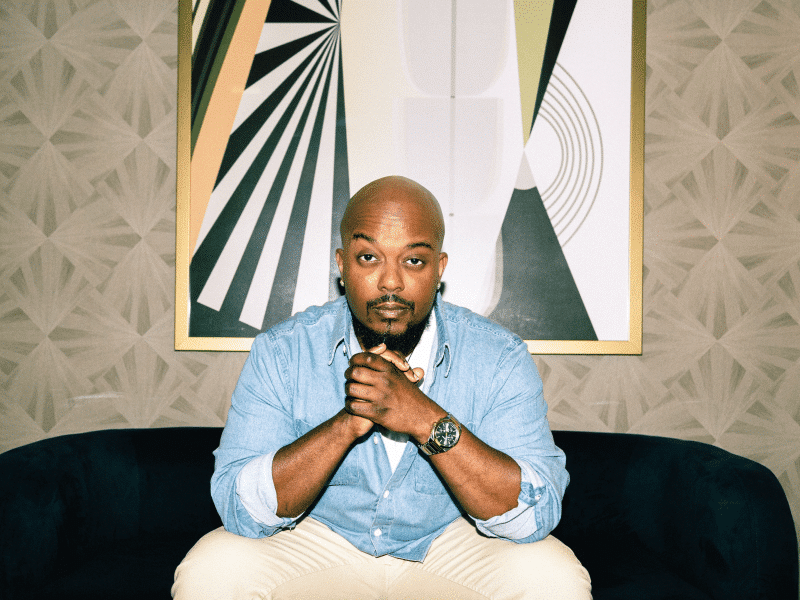Seeking credible sources of information is key to overcoming COVID-19 vaccine hesitancy
"We are nowhere near that 77 percent herd immunity level that we need, and we're already sort of seeing a waning interest in getting the vaccine."

FLINT, Michigan — In early 2021, when Pfizer, Moderna, and Johnson & Johnson all began rollouts of COVID-19 vaccines, public health officials hailed the developments as key to returning to a sense of normalcy worldwide after a pandemic that has caused more than 500,000 deaths in the United States alone.
Initially, in the early phases of the vaccine rollout, scarcity was a problem — more people were signing up to be vaccinated than doses available. Now, though, that problem has shifted. Doses have increased as demand has decreased. Now that doses are available in many locations (check this may for Flint area sites) doctors and medical professionals have now shifted to trying to allay fears of people who are hesitant to get vaccinated for varying reasons, ranging from lack of confidence in the safety or efficacy of the vaccine to having incorrect information about what the vaccine does.
According to estimates, approximately 70 percent of the population needs to be vaccinated in order to reach a herd immunity threshold that makes it possible for the virus to be controlled and life to return closer to a sense of pre-pandemic normalcy. Vaccine hesitancy is a threat to that threshold — a New York Times report predicted that the United States might not ever reach herd immunity.
Dr. Bobby Mukkamala, a local otolaryngologist (ear, nose, and throat specialist) and the newly nominated president of the Michigan State Medical Society, has been sharing information about the vaccines on his social media in an effort to provide resources and education for people who are in search of it. He’s also had one-on-one conversations with patients — one of the best ways to ease fears of people who have concerns about the vaccine is having conversations with trusted doctors or healthcare professionals who can answer questions and provide information.
Flintside recently talked with Dr. Mukkamala about ways he’s providing reliable and accurate information to patients to help them make informed decisions about the vaccine.
Flintside: What are the biggest challenges you have experienced with the administration of the vaccine to the public?
Dr. Mukkamala: “I guess the answer to that question has changed a little bit. At the beginning of the year, when the vaccine first rolled out, it was all about access to the vaccine. You know, getting enough to put into the hands of the thousands of people that were lining up at Northwestern high school and Bishop Airport. At the beginning, it was about access. Now we have more supply than demand, or at least even supply with demand. Now it is just an issue of convincing people to get the vaccine. We are nowhere near that 77 percent herd immunity level that we need, and we’re already sort of seeing a waning interest in getting the vaccine. I think it’s just because the elderly have gotten it (those over the ages of 60 or 70).
“When I talk to patients in my office, almost all of them have gotten it by now if they wanted it and that’s pretty much it. What’s left are younger, healthier people who weren’t dying by the thousands because of COVID and were just getting sick and then making it through for a week to 10 days sort of feeling down. The motivation to get it isn’t there. And then there’s also sort of that social media political dialogue about that the vaccine hasn’t been vetted properly and all the different things you hear about it. So for all those reasons, we’re not vaccinating as many people as we were. We can have an event that we’re ready to vaccinate 1,200 people and not have that many show up nowadays.”
Flintside: When you are one on one with patients, what is it that you can say to them that helps them become more comfortable with the vaccine?
Dr. Mukkamala: “They usually come to the conversation with some degree of misinformation, that the mRNA vaccine goes into the nucleus of a cell and can permanently alter your DNA. The rebuttal to that sort of comment or concern is that no, mRNA doesn’t go into the nucleus, it doesn’t mutate one’s DNA, and it’s gone in 30 days. It’s just there to code for a perpendicular spike protein. A lot of it is just sort of getting past the one-liner social media criticisms of the vaccine and getting in a little bit deeper to the science of the vaccine. How it works, what it does do, what it doesn’t do. What the true risks are. Now you see people talk about the Johnson & Johnson vaccine being stopped for a week or so and people were talking about blood clots in women. That is true, they paused it and looked closer into it. Now they have sort of restarted again with some advice concerning if you are a woman of childbearing age and you don’t want the J&J vaccine there is the Moderna and Pfizer vaccine to choose from. It also puts it into perspective that the six people that had this issue, when they first stopped it relative to the number of people they get clots because of the COVID infection is different, right? There’s so many more people getting clots from the actual COVID viral infection than from issues like this from the vaccines.”
Flintside: There has been some serious under reporting on the effects of the virus and the impacts that has long term on patients, what are some of the effects you have seen personally?
Dr. Mukkamala: “Just last week, our family’s friend’s daughter had her second miscarriage. When the placenta was delivered, the lab saw all these microemboli in the placenta. So it was her COVID infection that caused her to lose this pregnancy. There’s just a lot of information that’s continuing to develop and be acknowledged and researched. We know more than we did a year ago and a year from now, we’ll know more than we do now. It used to be a year ago that it was all about surviving, that people are dying and the number of people that survived it. Now we know that even in that large group of people that survived, the consequences that they’re living with. For example, we’ve got one friend who’s on a kidney transplant list because she lost her kidney function while she was sick with COVID. Another person I know is looking at a hand amputation, because of the clotting side effects from the virus. Thirty percent of people have fatigue months after recovering from COVID. These are the things that people who are waiting to get vaccinated or are on the fence about getting vaccinated need to be made aware of. Sure, will a 30-year-old otherwise healthy person survive COVID? Yeah, there’s a 99.9 percent chance that they will. Will they be the same person afterward? There’s a 30 percent chance that they won’t and that’s what they need to hear.”
Flintside: What motivates you to keep pushing for vaccine administration in the face of low compliance rates?
Dr. Mukkamala: “My motivation is I want to go see a movie in a movie theater, right? I want to go to a concert. I want the fun events that we have here in Flint, whether it’s Back to the Bricks, whether it’s the Crim, whether it’s the Eighties in the Hole. I want hundreds of people and thousands of people to be able to go. I want them to be able to get together. And we’re just not going to get there unless enough people get sick or enough people get vaccinated. I don’t want it to be the former because I don’t want 30% of the people coming to the Eighties in the Hole or the Crim, coughing and having chronic fatigue because they recovered from COVID. I would much rather they come happily because they’ve gotten the vaccine.
“I just want to get back to a sense of normalcy as soon as possible. And luckily I know, you know, I have a medical degree and years in the classroom and the hospitals, you sort of relate it all and seeing how science is done and how evidence is assessed. I just want to share that with people that maybe haven’t had a science class since school because they went down a different career path and they’re relying on their sophomore year biology to sort of understand what that mRNA is. They don’t have to rely on that because there’s good sources of information and I’m just happy to be one of them.”
Flintside: What are some locations you would recommend that are easy access for the community to get the vaccine?
Dr. Mukkamala: “The easiest way is to go to the health department website. Pharmacies have the vaccine, there’s lots of special events and then physician’s offices are now getting them as well. There is no shortage of places to get the vaccine.”






